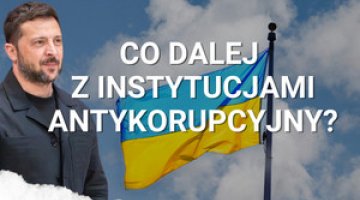Ukrainian opposition divided over the new constitution
The parliamentary meeting of a working group to devise a new Constitution, scheduled for 10 February, was cancelled, because Batkivshchyna and UDAR put forward competing projects. The first plan repeated most of the solutions from the Constitution of 2004, leading to a weak executive position for parliament; the second gives a strong position to the government and retains a large scope of authority (though narrower than now) for the president. Both projects were criticised by one of the leaders of the Maidan, Yuri Lutsenko, who demanded the immediate restoration of the 2004 Constitution. Under pressure from the Maidan, the leaders of both parties stated that this idea remained an option.
Commentary
- The opposition’s formal submission of projects to reform the Constitution would mean abandoning the call to restore the 2004 Constitution in an extraordinary way. Since the amendment of the Constitution can only be finalised within the normal timetable in the autumn, this would also mean consent to holding the presidential elections in 2015. That could open the way for a political compromise between the leadership of the opposition and the President, but also a deepened conflict between the opposition and the leadership of the Maidan, which is now an independent political factor.
- The project proposed by Batkivshchyna abolishes the prohibition on people with criminal records from standing as a candidate for parliament, while retaining the requirement for ten years’ residence in Ukraine for presidential candidates; UDAR’s position is the reverse. Batkivshchyna does not want Vitaly Klitschko to participate in the presidential election; nor does UDAR want Yulia Tymoshenko to return to politics. The disclosure of these disagreements between the two parties undermines the prospects for their cooperation, and opens up new possibilities for the President or foreign actors to play them off against each other.
- The Party of Regions does not intend to submit its own draft amendments to the Constitution, and has instead called for the presentation of a draft revision to the Venice Commission, which, given the pace of its work, would prevent the adoption of a new basic law before the presidential elections. It seems that Yanukovych’s circle and the Party of Regions’ leadership is convinced that time is working in their favour; the protests will expire over time, and a weakened opposition will have to make concessions.
- Both the ruling camp and the parliamentary opposition seem to disregard the fact that the current truce in Kyiv has been negotiated between the representation of the Maidan and the institutions of force without their participation; nor is the latter willing to consider the political demands which are being made increasingly clearly by the Maidan’s leaders. They are also ignoring the branches of the Maidan Self-Defence which have recently been organised outside Kyiv. Meanwhile, any real political compromise must include the dissolution of the armed Self-Defence camp at the centre of the Maidan; and this cannot be achieved without the participation of representatives of the Maidan in the negotiations. From the statements made by the Ukrainian politicians, it appears that allowing the Maidan leaders into negotiations is acceptable for the Party of Regions, while the opposition parties, seeing a threat to their position in these leaders, are adamantly opposed.





